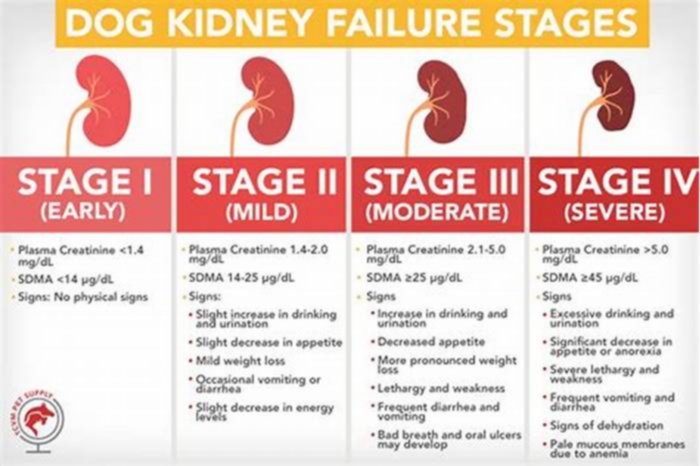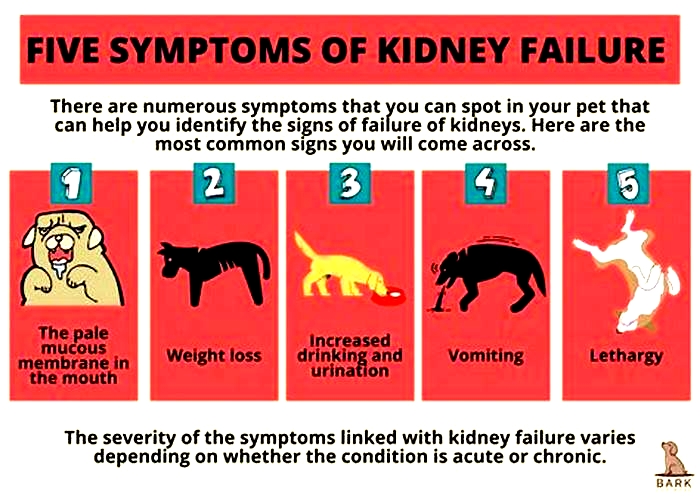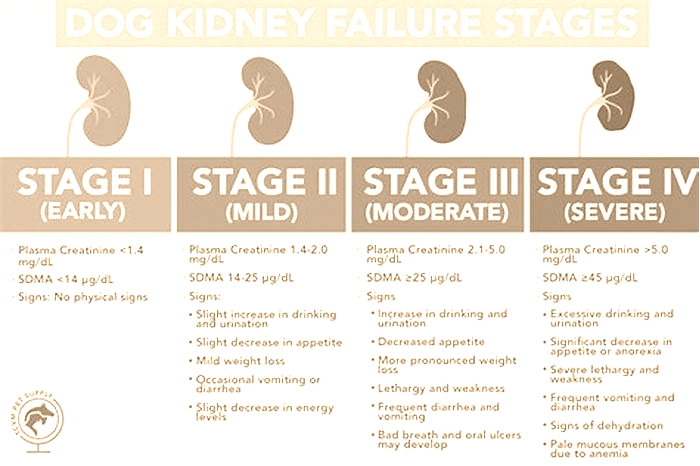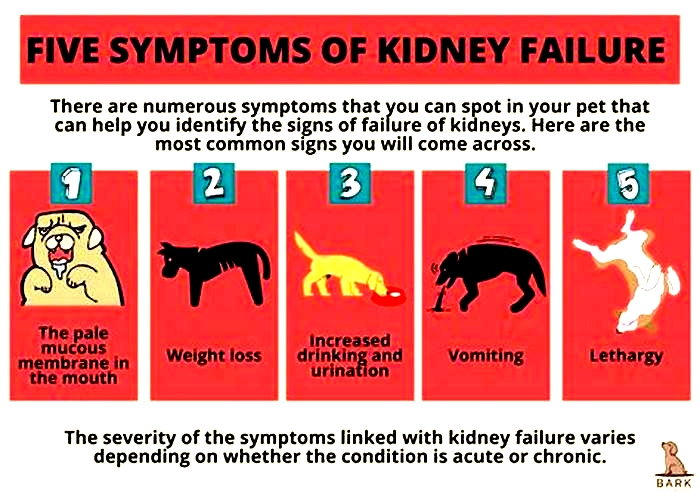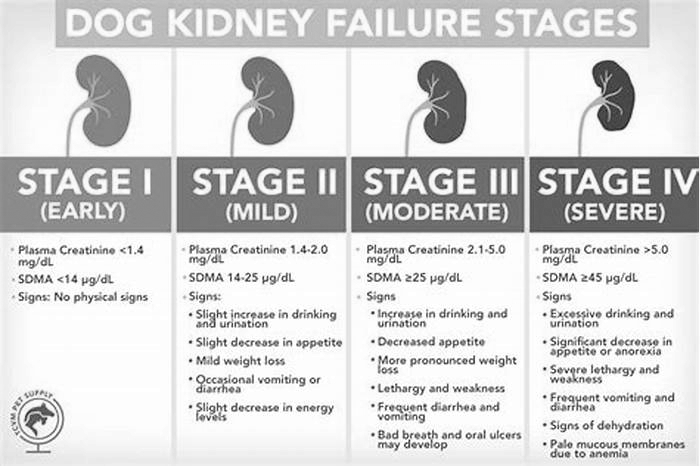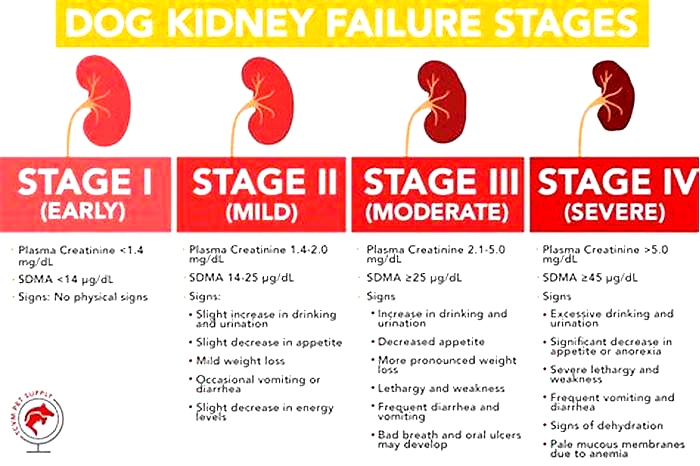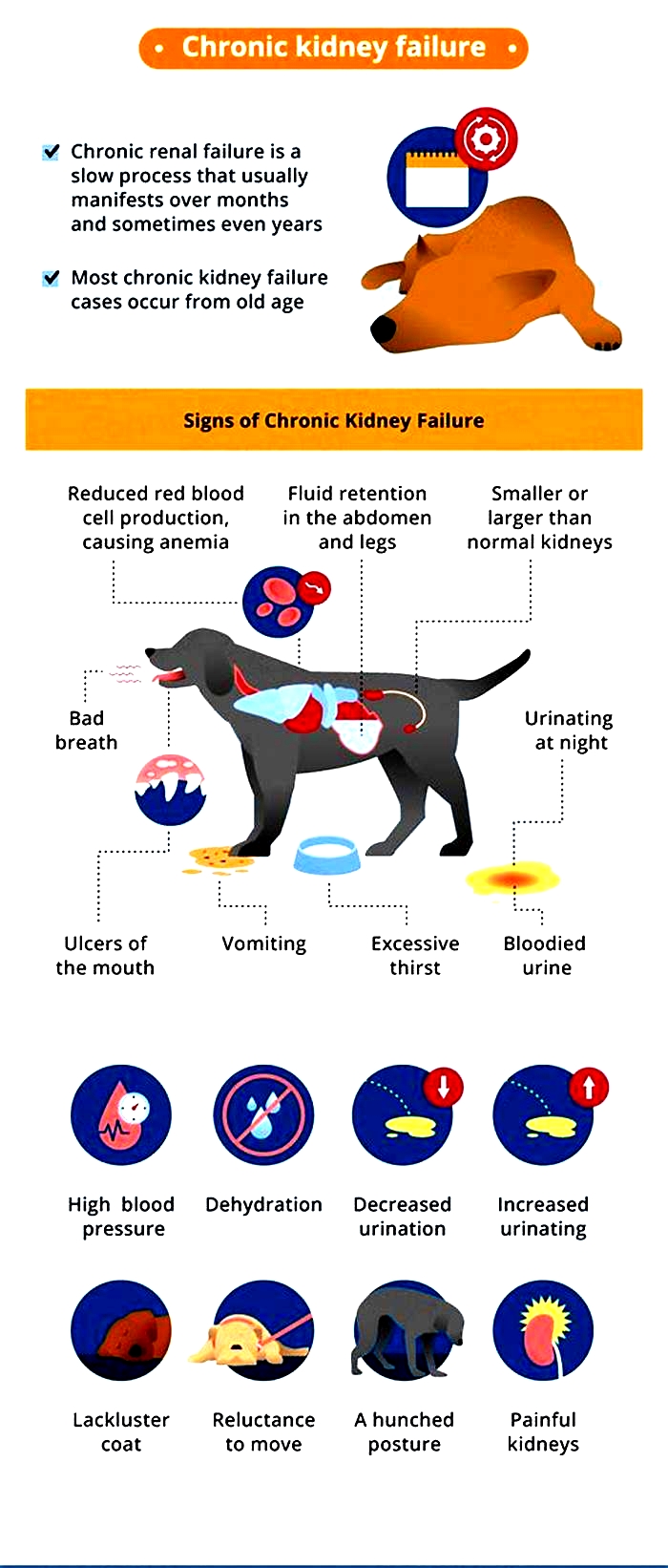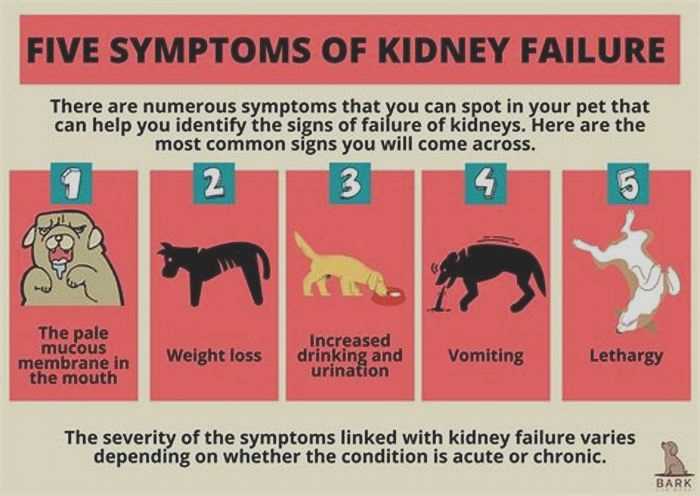what causes bad breath in dogs with kidney failure
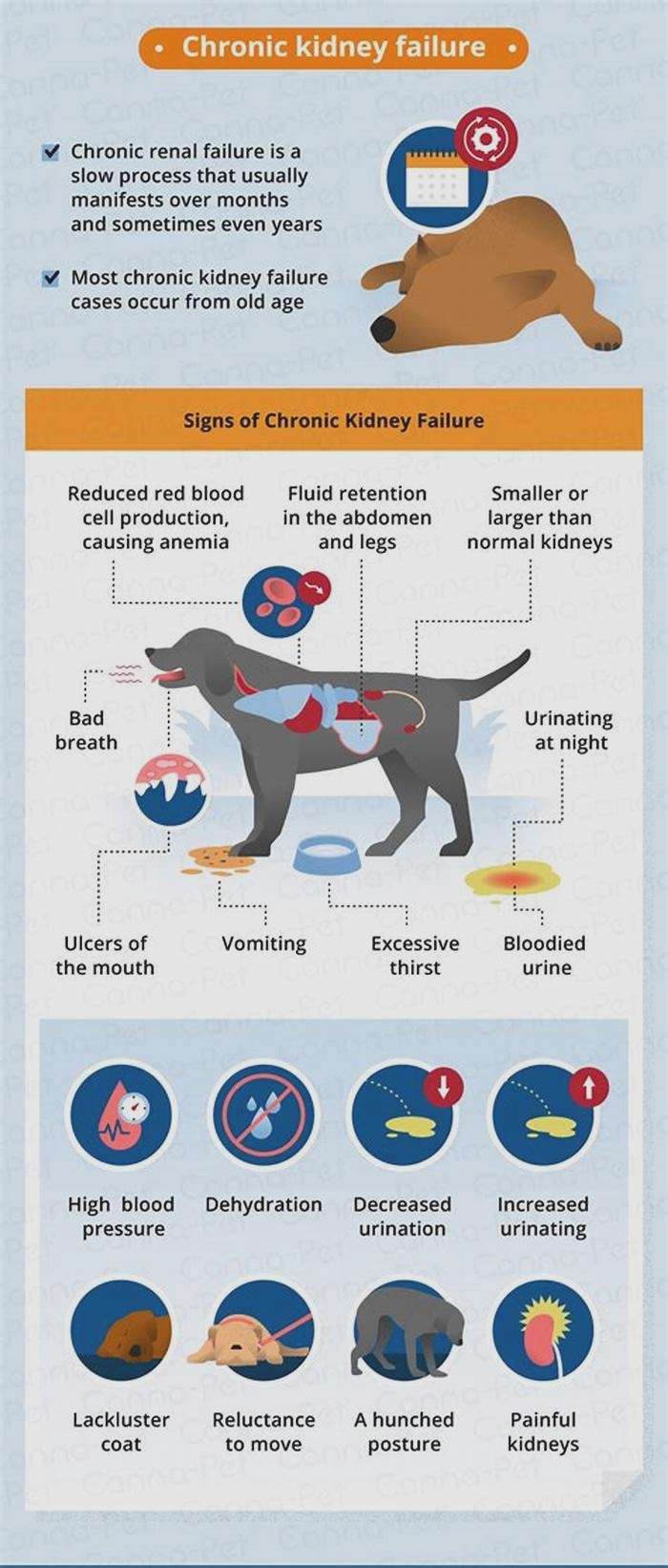
Halitosis or bad breath in dogs is a common symptom of kidney disease. High levels of urea tend to cause this bad breath to smell fishy. If your dogs breath strongly smells like ammonia, they may be suffering from kidney disease.
As kidney disease progresses into further stages in dogs, they may exhale bad breath. Toxins that build up in their gut are a common reason for this. It is a fairly common symptom and can be treated by following effective measures.
One spectacular way to fix this is for your dog to have consistent easy bowel movements so adding in some fiber, some pumpkins, etc. may help soothe things in their digestive system. The big solution to this is using probiotics. And by that, we mean using Good & Effective probiotics. Probiotics are good bacteria that help to get rid of kidney and uremic toxins. The more you give your dog, the better it is.
If youre looking for probiotics, the 2 billion to 5 billion range will not be of any help as its just not strong enough. You must get the ones with at least 25 billion or more. If youre looking to buy one, check this out!
We formulated a probiotic supplement called Kidney Restore for Cats & Dogs, which has 50 billion probiotics. Those probiotics are made up of varieties of strains that target the kidney toxins. It has other things in it that are great for the kidneys and improves kidney function for your pets.
Whatever you choose, this probiotic or one at the store, it is important to make sure that you read the nutrition facts and confirm that the probiotics are at least 25 billion or more. The ones that stores usually carry are between 2 to 5 billion and theyre just not strong enough to do the job.
If youre looking to fix that bad breath for your pet, using probiotics is a great way to solve that! Kidney Restore for Cats & Dogs is a probiotic supplement from Healthy Kidney Inc. which has had tremendous success in fixing bad breath in pets and improving many dogs kidneys.
Can Coffee Benefit Kidney Health?
Learn How Alpha Blockers Damage Kidneys
For more informational content & useful videos be sure to check out our YouTube Channel
Bad Breath in Dogs: Causes and Treatment
You may love getting kisses from your dog as a greeting when you get home, except when theyre accompanied by bad breath. Is it normal for a dogs breath to stink?
Bad dog breath can actually be a sign of a number of health issues, and some that you would never guess could be related to your dogs breath. Understanding why your dog has bad breath is the first step in appropriately treating not only the smell but the underlying cause.
Why Does My Dog Have Bad Breath?
In the past 10 years, dental hygiene in dogs has changed from occasional tooth extractions to yearly dental examinations and routine teeth cleaning. Preventative dental care options have become widely available, as well as the knowledge of what a dogs mouth can tell us about our canine patients. Bad breath has evolved from being a nuisance for pet parents to a veterinarians tool for diagnosing certain health issues.
Here are some of the most common:
Dental or Gum Disease: The most common cause of bad breath (halitosis) in dogs is periodontal disease. Similar to humans, dogs with crowded teeth or crooked, misaligned teeth (malocclusions) may be at a higher risk for secondary dental disease; however, most dogs will develop some tartar or plaque buildup (dental calculus) or gingivitis at some point in their life. Dental disease develops when an overgrowth of bacteria in the mouth forms a plaque, which leads to tartar buildup. Tartar can lead to inflammation of the gums (gingivitis). If enough tartar is allowed to build, hair and other debris can get stuck between a dogs gumline, adding to the development of bad breath.
Something Stuck in Your Dogs Mouth (bone, stick, foreign body): Dogs fond of chewing on toys, ropes, and sticks are at greater risk of getting foreign material stuck in their mouths. Cloth materials tend to get stuck between the teeth, whereas sticks or other firm material such as chew toys may get wedged in the roof of a dogs mouth. Some foreign bodies, like splinters, can get stuck under the tongue or in the cheek and may be hard to see. In some circumstances, strings or linear foreign material may get hooked under the tongue, and the bad breath could be accompanied by not eating and vomiting.
Kidney Disease: The kidneys function as the bodys filtration system. When theres underlying disease or kidney failure that causes the kidneys not to function, a dog may start to build up toxins called urea in their blood. The urea can make a dogs breath smell like ammonia or urine, which may be an indicator of serious kidney dysfunction. Excessive urea, called uremia, can cause ulceration in the mouth as well, which your vet may see on examination.
Liver Disease: Bad breath along with yellowing of the skin or eyes (jaundice) in conjunction with weight loss, poor appetite, and vomiting may indicate that your dogs liver may be affected. Along with the kidneys, the liver acts as a filter for the bodys toxins. When theres a problem with your dogs liver function, toxins can build, and this can show up as bad breath.
Diabetes: When diabetes becomes unregulated or untreated for a long enough period of time, the body starts breaking down fat, creating molecules called ketones. Dogs that are producing ketones secondary to diabetes may have an acetone or sweet smell to their breath. Dogs with diabetes often have other symptoms such as weight loss, changes in appetite, and increased thirst and urination.
Ate Something Toxic: Certain toxins like plants can cause rancid or a rotting smell in a dogs breath. Dogs who eat cigarettes may have a nicotine odor to their breath. There are hundreds of toxins present in the environment, and being able to detect what your dog may have been exposed to could help determine the right treatment.
Ate Something Gross (non-food item): Puppies or adolescent dogs may be more inclined to eat feces of other dogs or be curious about what is in the cats litter box. Dog breath that smells like fecal matter may be linked to simply eating poop. Alternatively, dogs who eat household objects or toys can develop rotten-smelling breath and may vomit if they arent able to digest the foreign material.
Oral Tumors: More common in older animals, the development of oral cancers or tumors can lead to bad breath. As masses grow, they can become infected, and parts of the tissues can start to die (necrose), leading to persistent bad breath despite good dental care. The most common oral tumors in dogs are melanoma, squamous cell carcinoma, and peripheral odontogenic fibromas.
Dietary Deficiencies: Feeding your dog raw or home-cooked diets may disrupt the normal balance of bacteria in the mouth or gut. Imbalances of bacteria and increased likelihood of Salmonella overgrowth in a dogs gut caused by raw diets may contribute to bad breath. If you feed your dog a raw or home-cooked diet, try to consult with a veterinary nutritionist (or if not, your regular vet) to help prevent dietary deficiencies.
How to Get Rid of Your Dogs Bad Breath
If your dog has bad breath, your first step is to schedule a dental exam. If you allow a veterinary professional to routinely exam your dogs mouth, they can detect dental disease and other health issues earlier.
If your dog is prone to periodontal disease, routine cleaning may be needed to help prevent excessive tartar formation and frequent dental extractions (having teeth pulled).
Here are some other ways to improve your dogs oral health and keep their breath smelling better:
Regular Brushing: Weekly to daily brushing with canine toothpaste and toothbrushes can be the most effective way to prevent plaque formation. Many dog toothpastes are flavored to be enticing to dogs.
Dental Treats and Products: Dental treats can either help physically remove plaque as your dog chews or may contain additives that promote a healthy oral environment. Other products like dental water additives can be used to help mask bad breath as well as promote oral health. These are typically unflavored, and you simply add a small amount to your pets water dish each day.
Dental Diets: There are dental diets made for dogs that can help reduce plaque buildup. They use a larger kibble size and a course texture to scrape along the tooth and remove plaque as your dog chews.
The Veterinary Oral Health Council (VOHC) can be a useful resource in picking veterinary-recommended dental diets, treats, and supplements that are safe and effective.
Featured image: iStock.com/adamkaz
Bad Breath in Dogs FAQs
Are there home remedies to treat bad breath in dogs?
The only way to completely resolve your dogs bad breath is treating the underlying cause. However, there are products that can help to lessen the bad breath and prevent it from worsening. The Veterinary Oral Health Council has a list of recommended products that may help.
Can halitosis in dogs (bad breath) be cured?
Halitosis is a symptom of an underlying medical condition, and successful treatment depends on the underlying cause. Its commonly caused by dental disease, which can be treated, but halitosis frequently returns if dental disease recurs.
Kidney Failure in Dogs
What Is Kidney Failure in Dogs?
The primary job of the kidneys is to filter the blood by removing waste products and controlling the amount of fluid and nutrients kept in the body and how much is passed in urine.
With any type of kidney failure, this filtering isnt working well, so waste products are not properly removed from the bloodstream and too much fluid is passed in urine along with proteins and electrolytes. As waste products build up in the blood and tissues, dogs can get ulcerations (tears) in the lining of their digestive tract as well.
Kidney failure may also be referred to by terms listed below. The word renal refers to all things related to kidneys, and is often used interchangeably. Failure, insufficiency, and disease are commonly used to describe similar issues with the kidneys.
Kidney disease is often divided into categories based on how long it has been affecting the dog. Acute renal failure occurs in a very short time frame, and is often caused by eating or drinking a toxin or getting a severe infection that harms the kidneys. Chronic kidney disease refers to a process with a more gradual onset or one that has been happening for a longer period of time.
Changes that can occur with an aging pet are often caused by chronic kidney disease, but if a dogs kidneys were damaged by eating a toxic item several months ago and he now has renal failure because of this, it is also known as chronic kidney disease.
Symptoms of Kidney Failure in Dogs
Drinking more water (polydipsia)
More frequent urination (polyuria)
Urinary accidents in house-trained pets
Lack of energy
Refusing to eat
Vomiting
Drooling
Changes in defecation (either diarrhea or constipation)
Weight loss
Mouth sores
Bad breath
Weakness
Causes of Kidney Failure in Dogs
Kidney failure can occur because of an acute event, such as a toxin ingestion or infection that harms the kidneys; degenerative (worsening) changes over time; or an underlying medical condition that damages renal tissues, which can occur due to genetic predispositions in some dog breeds.
Specific causes include:
Ingested toxins
Metabolic diseases
Kidney infections
Autoimmune disease
Cancers
Breeds that are prone to inherited renal failure include:
How Veterinarians Diagnose Kidney Failure in Dogs
Your veterinarian will want to run several tests, in addition to a physical exam, to diagnose kidney failure, such as:
Complete blood count
Chemistry panel
Urinalysis with culture
Abdominal ultrasound
Treatment of Kidney Failure in Dogs
Treatment of kidney failure is based on the severity of the disease and whether it is acute or chronic.
Acute kidney disease is treated with hospitalization and IV fluid therapy to support the kidneys and help them remove wastes. Depending on the cause of the disease, decontamination medications, toxin-binding medications, antibiotics, or medications to support the gastrointestinal tract may be given. In extreme cases, renal dialysis can help the kidneys. This last procedure is rare, only available at some university or veterinary specialty hospitals.
Chronic kidney disease requires careful management of dogs at home. They need to have access to water at all times and be encouraged to drink water. Many dogs have improvements with a prescription kidney diet. Some dogs need to be on medications to control high blood pressure or to protect their stomach. Pets with chronic kidney disease need to see their veterinarian often so that their renal values can be checked. Some dogs with kidney disease need to receive injectable fluids at home or may even need to be hospitalized at times to help their fluid needs.
Recovery and Management of Kidney Failure in Dogs
With acute kidney failure, prognosis is variable depending upon the cause of the disease, how severe the disease is, how damaged the kidneys are, the speed and aggressiveness of treatment, and the dogs response.
For chronic renal failure, long-term prognosis is not good. Most dogs die or are euthanized within a year because of poor quality of life.
The families of dogs with kidney disease should expect to watch them closely and will need to see their veterinarian often, especially as their pets kidney function gets worse. These dogs will be easily dehydrated, as their kidneys are not able to keep water in their bodies. Any infection, vomiting, diarrhea, or changes in appetite or activity could severely dehydrate the pet and worsen the disease.
Kidney Failure in Dogs FAQs
How does kidney failure differ from kidney disease?
Kidney disease is a broader term that includes any problem with the kidneys. Kidney failure is a specific term that means the kidneys cant keep up with filtering waste products and managing fluid levels.
Is kidney failure fatal in dogs?
Depending on the severity and progression of the disease, kidney failure can be fatal.
WRITTEN BY
Laura Russell, DVM, MBA, DABVPVeterinarian
Dr. Russell is a 2003 graduate of the University of Missouri. She is board certified in Canine and Feline Practice, certified in canine...

